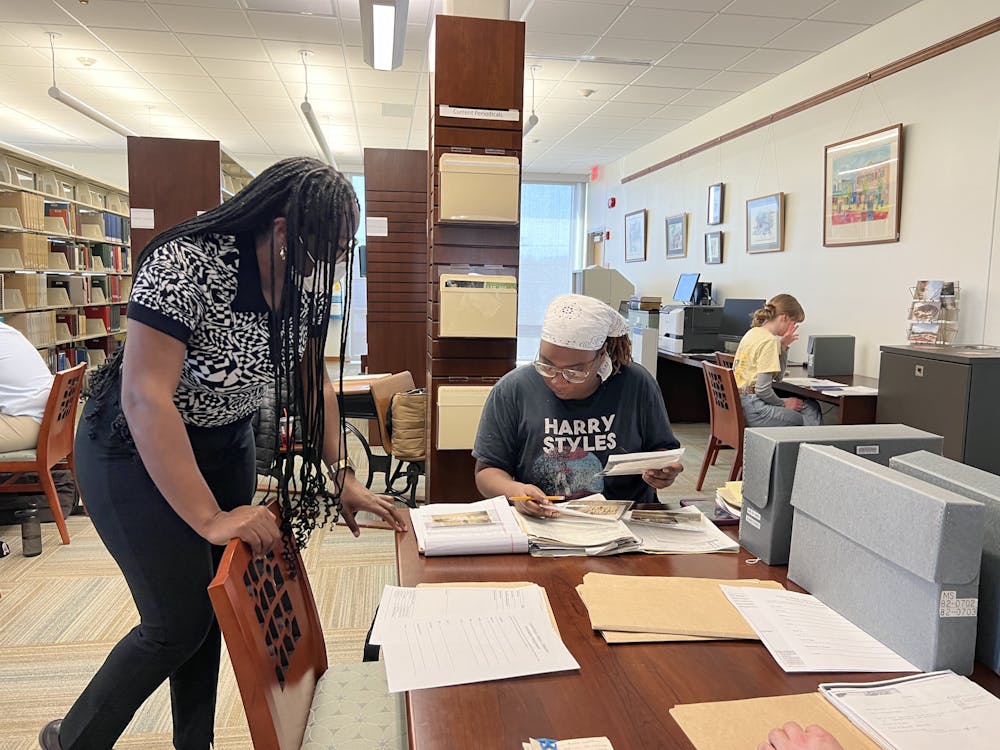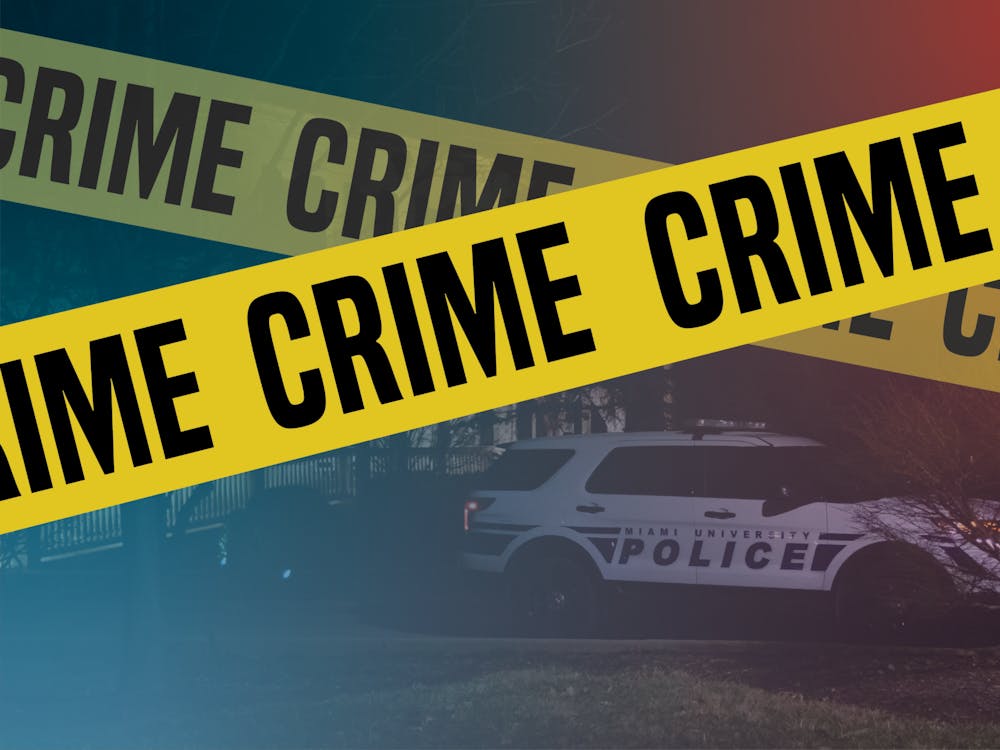In Miami University’s history department, students can take their pick at courses spanning thousands of years across every continent.
Interested in world history before 1500? There’s a class for that. Not quite through your “Percy Jackson” phase? Take a class on ancient Rome. Drawn to how gender plays a role in Middle Eastern Conflicts? HST 360Q has you covered.
But you don’t have to cross oceans or eons to make historical inquiries. Jazma Sutton and her students are focusing on Oxford for her courses this semester.
Sutton, an assistant professor of history, teaches The Black Midwest (HST 350Q) and Black Women in America (HST 450D) classes. In both courses, she has students working with the Smith Library of Regional History and Miami’s archives to document and preserve Black history in Oxford.
“I try to zoom in on the local perspective,” Sutton said. “What was the African American experience like in Oxford and at Miami? As much as possible, I incorporate their stories [and] primary sources related to them into the classroom.”
Part of the local perspective Sutton brings into the classroom comes from her partnership with local archives. For Miami’s archives, she had students help describe documents in the Jennie Elder Suel collection, which will eventually be digitized.
Jackie Johnson, university archivist, said the Suel collection includes photographs, newspaper clippings, letters, marriage certificates and other items related to Black history in Oxford that Suel donated in the 1990s. Johnson said professors often use the university’s archives for educational purposes.
“Our focus is that we continue to help [Sutton] and support her in her research, along with the students,” Johnson said. “Every student in her class is an undergraduate researcher or a graduate researcher, so it’s important for us to make sure that we help them and that we exceed their goals.”
Sutton was born and raised in the Midwest, but her interest in regional Black history didn’t develop until she attended Southern Illinois University.
“It wasn’t until I got to college that I even started to learn about African American history besides the few individuals that we oftentimes like to focus on — MLK, Rosa Parks, et cetera,” Sutton said. “So I started to get a more complicated history of the United States from the perspective of African Americans in college.”
Miami is a predominantly white institution, and Sutton knows that many students may take their first class focused on African American history while on campus. While that does pose a challenge, Sutton also sees it as an opportunity to provide students with a new perspective.
“There’s a lot of myth breaking that we have to start off with foundationally in my class … It allows me to introduce them to an aspect of history or a different type of way of doing history than they typically associate with it,” Sutton said.
Enjoy what you're reading?
Signup for our newsletter
Beyond teaching her students about Black history in the region, Sutton hopes her hands-on approach to local history will have a positive impact on the community. By having her students describe and annotate primary source documents and explicitly relate them to Black history, her goal is to make it easier for educators and interested members of the community to find these resources and incorporate them into their teaching.
If someone wanted to go to the Smith Library today and research local Black history, Sutton said they would have to start broadly and narrow their focus to find the right resources. Her classes’ work will change that.
“The archival resource guide is … just to help future researchers, students, anybody interested in this history, descendants of the individuals that have lived here, to have a better research process,” Sutton said.
Elijah Walter, a senior history major and graduate student, is taking his second course with Sutton this semester, Black Women in America. He said the first week of class was especially helpful in understanding how to approach Black history with sensitivity. Sutton focused on the proper terminology to use in discussions, such as saying enslaved people instead of slaves.
“[Sutton told us] don’t be scared to bring up something into discussion,” Walter said. “If you’ve maybe misunderstood this article, don’t be embarrassed. It’s your bias you don’t understand, it’s still good to bring up and have a discussion about it.”
Olivia Freeman, a first-year chemical engineering major, took a course with Sutton last semester in African American history before deciding to enroll in a course with her again this spring.
Freeman said Sutton is the first Black female instructor she’s had since fifth grade. She said having Sutton to look up to has helped her feel less isolated on Miami’s Oxford campus, which is 80% white and only 3% Black.
“As a Black woman, I like learning more about Black women in America, like our place in history here,” Freeman said, “and the kind of history I will be able to leave when I’m off into the world.”




